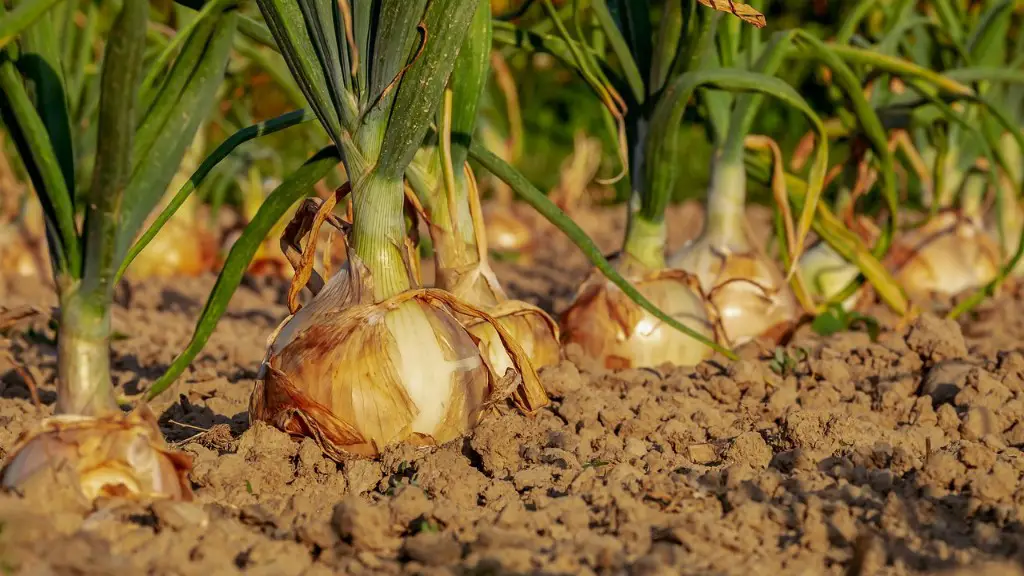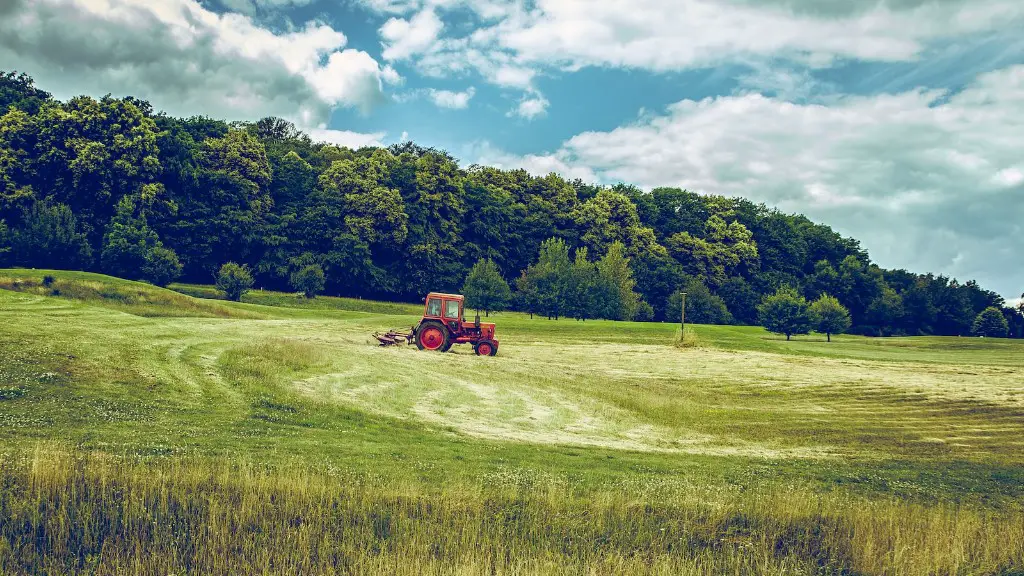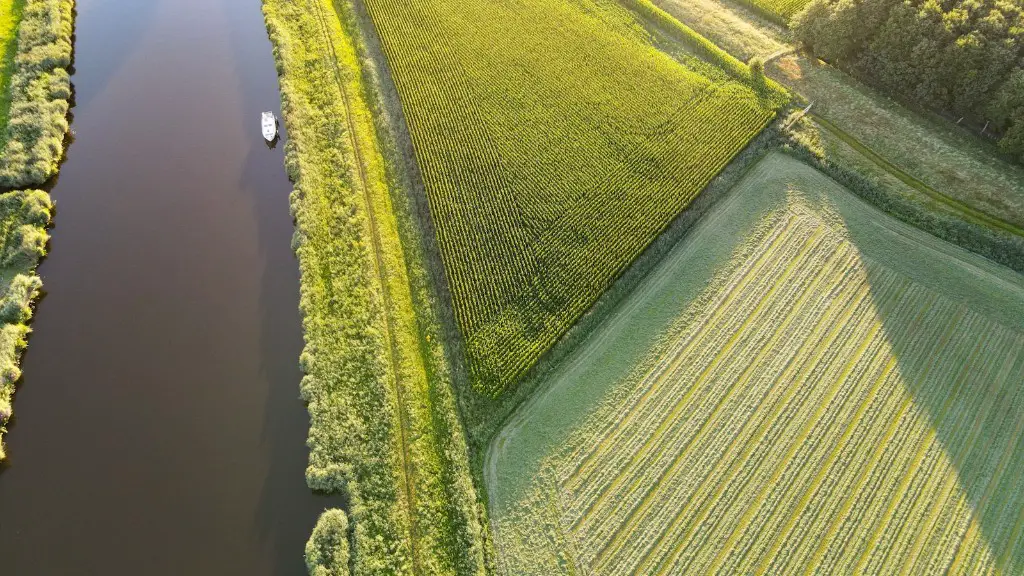Cultures have a significant influence on agriculture. It is the worldwide influence of culture on international agricultural production and consumption that shapes the way agricultural systems interact with the environment. From harvesting techniques and crop selection to land-use practices and factors controlling agricultural production and resource allocation, cultural factors play a fundamental role in the success and sustainability of agricultural systems.
The cultural norms and expectations for agricultural production vary widely from place to place. Traditional customs, beliefs and practices related to agricultural activities can easily differ from environment to environment, often to the detriment of the environment. For example, traditional cultures in rural areas may overlook the importance of sustainable agricultural practices, instead relying on cultural norms that are not sustainable in the long term.
Cultural values, beliefs and customs can also be important sources of environmental knowledge and wisdom. Traditional knowledges and wisdom accumulated over generations can often provide crucial guidance regarding ways of agricultural production that are suitable to different local environments. Pre-established views, beliefs and ritual practices concerning the environment, land use and agricultural production can offer an important source of knowledge, often neglected by modern agricultural practices.
Cultural conventions can also influence agricultural production and the allocation of resources. In many places people may have an emotional attachment to their land and traditional ways of agricultural production. This can lead to the exclusion of certain types of technologies, chemicals and practices from pastoral systems. Such conventions can constrain agricultural productivity and increase the risk of crop failure due to limited access to modern, advanced technologies.
The degree to which cultural factors influence agriculture greatly depends on one’s local context. In some places, traditional assumptions, customs and rules may dominate agricultural systems while in others they might be absent or in effect only to a limited degree. Nevertheless, coming to an understanding of the many ways in which culture shapes, affects and influences agricultural systems is important to support research, development, policy and decision-making processes in the world’s food systems.
Sustainable Agricultural Practices
Sustainable agricultural practices, both traditional and modern, play a critical role in the continuing health of agricultural systems. Understanding how cultural factors inform sustainable agricultural practices, from land use to resource allocation, is essential to achieving a more productive and sustainable food system. Traditional agricultural practices often form the basis of successful and sustainable agricultural systems, as they can incorporate important traditional and cultural values, beliefs, food preferences and natural processes into the production system.
In order to effectively use and protect the environment, a deeper understanding of the relationships between traditional and modern agricultural systems and the culturally specific practices and preferences is essential. Culturally appropriate approaches to developing and evaluating new agricultural practices are also necessary. Appropriate investment in local and traditional agricultural practices will help ensure their viability and the protection of traditional knowledge.
In certain parts of the world, traditional agricultural practices have not been used or maintained. As a result, the environment may become subject to degradation, leading to declines in agricultural productivity. Restoring traditional systems of agricultural production and maintaining traditional agricultural knowledges can go a long way in revitalizing and protecting the environment, as well as promoting sustainable agricultural systems.
Encouraging cultural understanding and cooperation may prove beneficial to enhancing agricultural sustainability worldwide. By understanding how cultural values, beliefs, customs and expectations inform agricultural production, governments, researchers, farmers and policy makers can work together to design and implement sustainable practices. This can lead to the development of globally beneficial agricultural systems.
The Role of Gender
Gender roles and relationships in society also play a role in agricultural decision-making. In some traditional societies, men are tasked with production and management of land while women are in charge of the home and family. This has changed in modern societies where both men and women have become increasingly empowered and involved in making decisions related to agricultural production, resource allocation and environmental protection.
Women have been found to play an important role in agricultural decision-making and in preserving traditional knowledges and agricultural practices. They have been seen to have a more protective attitude towards the environment than men. Women have also been found to be more willing to embrace new and sustainable technologies, practices and strategies related to land management and agricultural production.
Women’s involvement in agricultural production has been increasing in many parts of the world. This increasing inclusion of women in agricultural decision-making may prove beneficial for the sustainability of agricultural systems and for improving the livelihoods of rural populations. Allowing women equal access to agricultural resources and decision-making processes can provide opportunities to increase productivity, strengthen food security and improve the environment.
Gender is just one example of how cultural factors shape agricultural production, land use and resource allocation. Other examples include traditional systems of land tenure, labor division, and resource management, which can all be conditioned by cultural norms, beliefs and customs.
The Role of Education
Education is another important cultural factor that influences agriculture. By educating farmers, ranchers and policy makers about the importance of sustainable agricultural practices, the chances of long-term success in agriculture can be greatly increased. Achieving success in agriculture requires an understanding of the local and global context available, including any cultural factors that might influence the decisions and actions taken.
Investments in agricultural education can have a significant and long lasting effect on the sustainability of agricultural systems. Education can provide the means to inform and empower rural populations, enabling them to make more informed decisions concerning the environment and agricultural production. Informing and engaging policy makers, farmers and other stakeholders about the need for and benefits of sustainable agriculture can also be critical.
Understanding the roles and responsibilities of rural populations in developing sustainable agricultural systems is also important. Rural populations need to be provided with the knowledge, skills and capabilities required to make and implement sustainable agricultural practices.
Agricultural education needs to be tailored to the context and local environment. Including a cultural component to education about land use, resource management and agricultural production can be the key to unlocking the potential of a sustainable and prosperous agricultural system.
The Role of Local Communities
In order to develop and promote sustainable agricultural practices, it is essential to involve local communities in the decision-making process. Sustainable agricultural policies need to be based on local knowledge, values and priorities. Local communities, and often the women of the community, are in the best position to identify and address their own local needs and issues.
By engaging local communities in the decision-making process, sustainable land management, agricultural production and environmental protection can be achieved. Application of traditional cultural systems, values and knowledges can also be beneficial. By taking a holistic and community-level approach to land use and resource management, sustainable agricultural and environmental goals can be met.
Success in achieving and maintaining sustainable agricultural systems is dependent on the coordinated, cooperative and supportive action of multiple actors. Involving all stakeholders in agricultural decision-making is essential to ensure that all voices in a community are heard, respected and taken into consideration.
Involving local communities in developing informed agricultural and environmental policies and practices may prove beneficial as strategies and interventions can be more tailored and appropriate to the local context. This can lead to more effective and successful strategies for sustainable agricultural production and land use.
Switching to Sustainable Agriculture
Conversion to sustainable agricultural systems can often be difficult, but is urgently needed in order to protect the environment and global climate. From the adoption of more efficient methods for harvesting and managing resources, to reviving traditional ecological knowledges and practices, switching to sustainable agricultural systems is one of the most important things we can do to protect our environment and the future of our planet.
It is important to consider all the means available to promote a switch to sustainable agricultural systems, including traditional and modern approaches. Ensuring the involvement of local communities in the development of sustainable agricultural strategies has been found to be beneficial in helping make a successful transition.
In order to create and sustain viable and resilient agricultural production systems, a mix of traditional and modern techniques, methods, practices and technologies may be necessary. Understanding and incorporating cultural factors into agricultural decision-making is an important element of creating resilient and sustainable agricultural systems.
Overall, cultural factors have a significant influence on agricultural production, land use and resource allocation. From traditional knowledges and practices to gender roles and education, cultural influences are pervasive and varied. Incorporating cultural considerations into agriculture and policy-making can help create sustainable systems of agricultural production and land use that are culturally, economically and environmentally beneficial.





